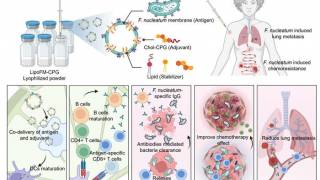Later-Stage Prostate Cancer Treatment Approved by FDA

The U.S. Food and Drug Administration (FDA) announced the approval for a new use for enzalutamide (Xtandi®) for the treatment of metastatic hormone-sensitive prostate cancer (mHSPC).
mHSPC refers to men whose prostate cancer has spread to areas of the body outside of the prostate itself, and who are responsive to testosterone-lowering agents, says the FDA.
This FDA approval on December 16, 2019, is based on results from the randomized phase 3 ARCHES clinical trial, which was presented at the 2019 Genitourinary Cancers Symposium held in February, and published in The New England Journal of Medicine.
This is important news since, in the United States, 174,650 new cases of prostate cancer are expected in 2019, with 31,620 anticipated deaths. The majority of deaths from prostate cancer are due to metastatic disease, identified either at diagnosis or after relapse following local therapies, says the Centers for Disease Control and Prevention.
Enzalutamide was previously FDA-approved in 2018 for the treatment of metastatic castration-resistant prostate cancer (mCRPC) and non-metastatic castration-resistant prostate cancer (nmCRPC), reported the Prostate Cancer Foundation (PFC).
With this approval, XTANDI is now the first and only oral treatment approved by the FDA in 3 distinct types of advanced prostate cancer – non-metastatic and metastatic castration-resistant prostate cancer (CRPC) and mCSPC.
Patients included in this study were “hormone-sensitive” and may have previously received androgen deprivation therapy (ADT) for a certain amount of time, but their cancer has not yet developed resistance to ADT.
The ARCHES trial, led by Dr. Andrew Armstrong, of Duke Cancer Institute, tested the addition of enzalutamide vs. placebo to ADT in 1,150 men with mHSPC. Patients on this trial could have previously received ADT and/or up to 6 cycles of docetaxel chemotherapy, but could not have experienced disease progression on those therapies.
The addition of enzalutamide to ADT in men with mHSPC reduced the risk of radiographic disease progression (growth of tumors on scans) or death (whichever came first) by 61%, compared with placebo.
Subgroup analysis of radiographic progression-free survival indicated enzalutamide was beneficial compared with placebo in low and high volume disease, and in men with and without prior docetaxel chemotherapy.
Enzalutamide also significantly delayed time to PSA progression by 81% and delayed the time to the next anticancer therapy by 72% compared with placebo.
Dr. Armstrong, the lead investigator of ARCHES, said in a related press release, “The research supporting the FDA approval and updated treatment guidelines provide physicians and patients with compelling evidence to consider enzalutamide as a treatment option for men with this disease.”
It is too early to evaluate overall survival (OS) in this trial as a median has not been reached for either treatment group, said the FDA in this press release.
In this study, Enzalutamide + ADT was well tolerated, with safety profiles consistent with previous trials testing enzalutamide in CRPC.
The Adverse Events (AEs) that occurred more frequently in enzalutamide + ADT vs. placebo + ADT included: hot flash (27.1% vs 22.3%), fatigue (19.6% vs 15.3%), hypertension (8.0% vs 5.6%), and musculoskeletal pain (6.3% vs 4.0%).
The total number of all grade AEs and Grade ≥3 AEs were similar in enzalutamide + ADT vs. placebo + ADT groups.
The PCF funded the initial synthesis at UCLA by chemist Michael Jung, Ph.D., in collaboration with prostate cancer physician-scientist Charles Sawyers, M.D., who is now at Memorial Sloan Kettering Cancer Center.
These researchers disclosed various industry relationships.
Prostate Cancer news published by Precision Vaccinations
Our Trust Standards: Medical Advisory Committee
- ARCHES: A Randomized, Phase III Study of Androgen Deprivation Therapy With Enzalutamide or Placebo in Men With Metastatic Hormon
- FDA Approves Enzalutamide (Xtandi) for Non-Metastatic Castration-Resistant Prostate Cancer
- XTANDI® (enzalutamide) Approved by U.S. FDA for the Treatment of Metastatic Castration-Sensitive Prostate Cancer


























